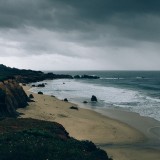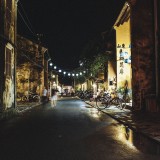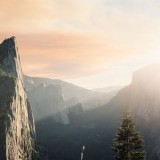Treasured Memories Of Vacations At The Beach
A beach is a landform along the shoreline of an ocean, sea, lake, or river. It usually consists of loose particles, which are often composed of rock, such as sand, gravel, shingle, pebbles, or cobblestones. The particles comprising the beach are occasionally biological in origin, such as mollusc shells or coralline algae.
Beaches typically occur in areas along the coast where wave or current action deposits and reworks sediments.
Longest beaches
Amongst the world's longest beaches are:
- Praia do Cassino (212 kilometres [132 mi][11]) in Brazil;
- 90 Mile Beach in Victoria, Australia (151 kilometres [94 mi]);
- Cox's Bazar, Bangladesh (120 kilometres [75 mi] unbroken);
- 90 Mile Beach in New Zealand (88 kilometres [55 mi]);
- Fraser Island beach (about 65 kilometres [40 mi]) in Queensland, Australia;
- Troia-Sines Beach (63 kilometres [39 mi]) in Portugal; and
- Long Beach, Washington (which is about 40 kilometres [25 mi]).
Wild beaches are beaches that do not have lifeguards or trappings of modernity nearby, such as resorts, camps, and hotels. They are sometimes called undeclared, undeveloped, or undiscovered beaches. Wild beaches can be valued for their untouched beauty and preserved nature. They are most commonly found in less developed areas including, for example, parts of Puerto Rico, the Dominican Republic, Thailand, the Philippines and Indonesia, but they are also found in developed nations such as Australia and New Zealand.







Recent Comments